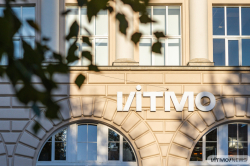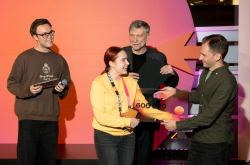Within the module, students will learn to operate rTIM, the AI-based software-hardware suite that can be used to quickly and efficiently model urban and socio-economic landscape development scenarios. By combining digital and AI design tools, it’s possible to significantly accelerate the time needed to develop a master plan – from several weeks to mere hours.
Through rTIM, students will get to access new opportunities, such as quickly visualizing and evaluating project ideas and hypotheses, calculating technical and economic parameters, as well as analyzing the effect of various factors and changes on a territory’s development. Experts with such skills will be in particular demand in modern urban planning.
“Generative AI has a powerful potential for transformation in various sectors of the economy. It can serve as an advisor, as well as a creator of entirely new solutions, including projects for territorial development, urban development, and beautification of public spaces. The main thing here is to teach architects and urbanists to fully incorporate these opportunities, working hand in hand with AI,” says Alexander Boukhanovsky, the head of ITMO’s Research Center “Strong AI in Industry.”
In the future, the module will be launched at other Russian universities as part of educational programs for future urbanists, as well as professional development courses.
“Working with AI through rTIM doesn’t mean you don’t need fundamental knowledge in the field. Thus, familiarity with the software will be an advantage that allows specialists to complete their tasks more quickly and with higher efficiency,” adds Evgeny Antonov, the director for strategic development and communications at Rocket Group.




